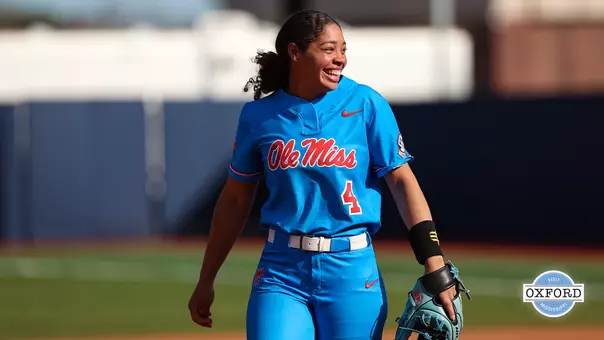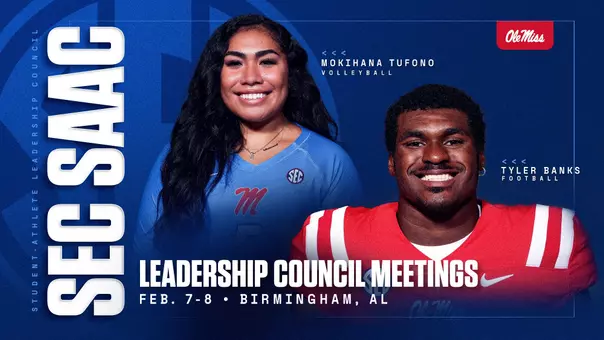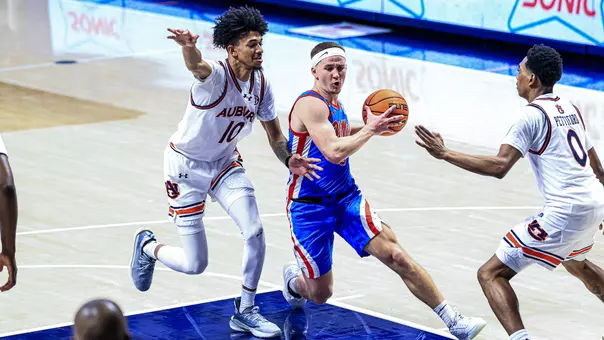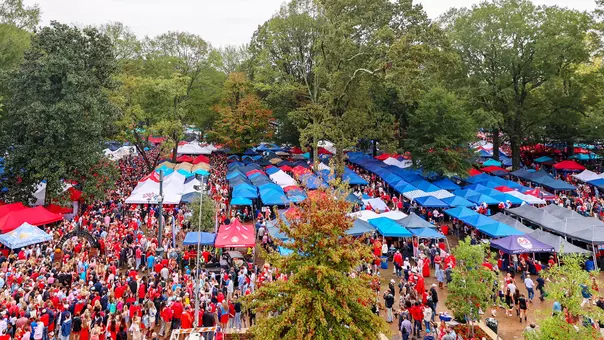The University of Mississippi Athletics
Inside Athletics: John Hartwell
5/11/2008 | Athletics
OleMissSports.com's Inside Athletics is a biweekly blog by the Ole Miss athletics department's senior administrators and key personnel to offer fans added insight into the overall operation of the department.
One topic often discussed among Ole Miss fans is football scheduling. Whether they are talking about who we should schedule or who we shouldn’t schedule, it is often debated. For that reason, we felt it would be appropriate to give some insight into our scheduling philosophy.
Since the NCAA made the decision prior to the 2006 season to permanently go to a 12 game regular season, Ole Miss has scheduled with the intent to play seven home games and five road games each year. Due to the fact we play eight Southeastern Conference games each year that are scheduled by the league office, we know that four home and four away games are put on the schedule by the SEC. It is the remaining four games that we are responsible for scheduling. Using the seven home and five away guideline with the SEC games already scheduled, the mix of the remaining four games is three home and one away. When scheduling these other four games, a variety of factors come into consideration such as availability of desired opponents, NCAA guidelines, type of contract, amount of guarantee, strength of schedule, and the appropriate breakdown of home and away games.
Our goal with the four non-conference games is to have two home games as part of “guarantee” contracts and the other home game and one road game as parts of “home and home” contracts. “Home and home” contracts are those in which you agree to play an opponent once at your home stadium to be followed the next year (or in a subsequent year) by a game at their stadium, or vice versa. These games normally involve the home team in a particular year paying the visiting team an amount of money for travel expenses ($200,000 - $250,000 is average), and that same amount is exchanged in reverse when the game is returned. Examples of this type of contract that we will play in future years are
Guarantee contracts are sometimes hard for us to negotiate due to the fact we play in a league that is known for paying out large guarantee amounts. Some schools in the SEC are regularly paying guarantees in excess of $800,000 for a single game. There are schools that have contracts for future games with guarantees at $1,000,000 plus. The ability to generate these large guarantees is a pure numbers game. When you have a stadium that seats 40,000 more fans (example:
Another factor in determining opponents is strength of schedule. This is extremely important playing in the SEC, because you know that for at least eight of the 12 games on your schedule, you will be facing some of the best teams in the country. Therefore, you want to make sure at least a couple of the non-conference games you schedule are games that “on paper” you should be favored. This is sometimes difficult to do because of the length of time in advance that you have to schedule, and the parity in college football today. There is not a greater example of this than last year when Appalachian State went to
One more key factor is the mix of home and away games in a given season. Although it is not always possible, we try to avoid playing three or four consecutive home games. This type of schedule is good from the standpoint of having a home field advantage. However we understand that it is difficult for the family from
As you can see, there are many factors that go into determining future football schedules. We will continue to work with our football coaching staff and administration to schedule quality opponents for the Ole Miss Rebels.
John Hartwell
Senior Associate Athletics Director For Finance
Past Article
| 04/24/2008 | Inside Athletics: Sans Russell | |
| 04/11/2008 | Inside Athletics: George Smith | |
| 03/24/2008 | Inside Athletics: J. Stern | |
| 03/10/2008 | Inside Athletics: Langston Rogers | |
| 02/24/2008 | Inside Athletics: Joey Brent | |
| 02/01/2008 | Inside Athletics: Shannon Singletary | |
| 01/17/2008 | Inside Athletics: Derek Horne | |
| 12/20/2007 | Inside Athletics: Lynnette Johnson | |
| 12/05/2007 | Inside Athletics: Karen Schiferl | |
| 11/24/2007 | Inside Athletics: Blake Barnes | |
| 11/06/2007 | Inside Athletics: David Wells | |
| 10/17/2007 | Inside Athletics: John Hartwell | |
| 10/05/2007 | Inside Athletics: Sans Russell | |
| 09/24/2007 | Inside Athletics: Walker Jones | |
| 09/05/2007 | Inside Athletics: George Smith | |
| 09/05/2007 | OleMissSports.com Launches Athletics Blog |




